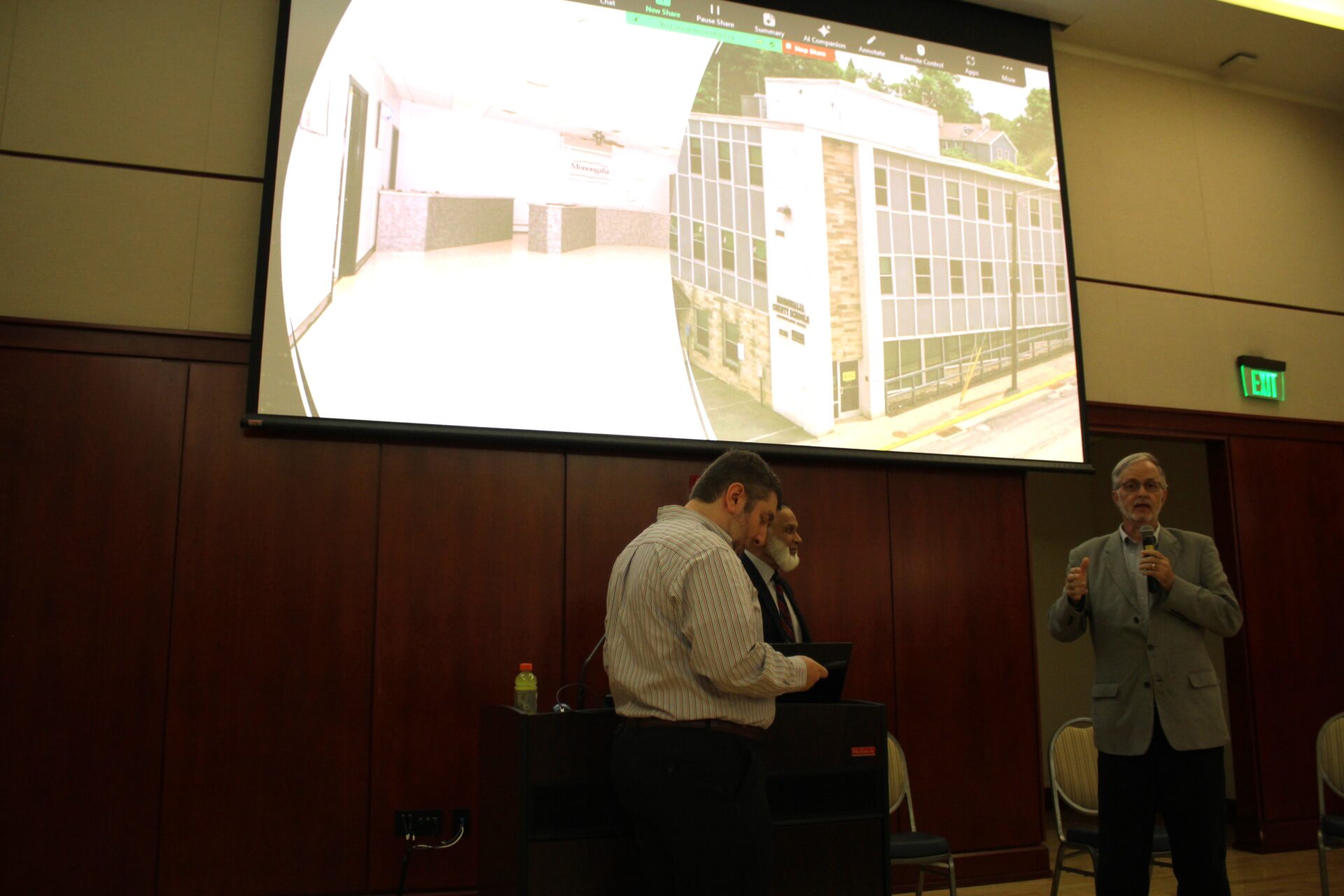One of the two charter schools under review to open next year held a public hearing in Morgantown Thursday night.
Wisdom Academy is seeking formal approval from the West Virginia Professional Charter School Board. The state’s charter school law requires applicants hold a public forum during their interview process where local residents can learn about the application and provide input.
Javaid Syed is the program director of information technology and computer science at Salem University, and the board chair for Wisdom Academy. In his presentation, he discussed the importance of preparing students for a changing world, particularly around technology.
“If you do not provide digital literacy to our children properly, the school children will be left behind,” Syed said. “Time is not going to stop for anyone.”
He answered questions about the school from parents and community members for close to an hour. These questions ranged from why a charter school was necessary to what curriculum would be followed.
“We have seen firsthand the challenges that our students have felt when they were going to school,” Syed said. “We feel that at this stage we are at, we have this opportunity to create this school and address some of those weaknesses that are in the public schools. I feel that we are in a position that we can address some of those challenges that the diversity of Morgantown student body (has). We will be able to cater to the needs much better than the public schools.”
The Wisdom Academy’s application states that two of its board positions are to be filled by members from the Iqra Educational Foundation, a local non-profit offering support to the academy. The non-profit’s members purchased the Monongalia County Schools Administration Offices building in Morgantown, the proposed site of Wisdom Academy.
At least three people present Thursday night asked about the possibility of teaching Arabic at Wisdom Academy.
“We’re going to evaluate it, we are going to see what the student needs are,” Syed said. “It’s still a bit too early to say ‘No, no, we are going to do it’ because I don’t want to commit to anything. Because, first of all, we have not been approved yet.”
Syed was surprised and motivated by the more than 30 people who showed up to the forum.
James Paul, executive director of the West Virginia Professional Charter School Board, also felt attendance was notable.
“Tonight’s turnout was significantly larger than turnout in the previous application cycle,” Paul said.
He said a bigger turnout is good not just because the public forum is required by law, but because feedback can help applicants like the Wisdom Academy improve their offerings.
“It’s hopefully beneficial to the applicants who are able to respond to anything that was raised tonight, they can refine their application or prepare for how they’re going to take the feedback that they’ve received tonight and implement that if the school is eventually approved and opened,” Paul said.
Paul said the focus on Arabic as a potential foreign language at the charter school highlights the purpose of the charter school movement.
“Certainly one of the promises of charter schools is the ability to have a more specialized academic curriculum, academic themes, modes of instruction,” Paul said. “I think it’s great that this particular school is looking at potentially doing some unique things with foreign languages.”
The charter school board expects to complete its review of Wisdom Academy in November. If approved, it would become the second charter school in Morgantown and the eighth in the state.
Note: This story was updated at 4 p.m. Oct. 20 to correct a reference to the Iqra Educational Foundation. The foundation supporting the Wisdom Academy is a separate entity from an organization of the same name in Skokie, IL.
